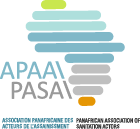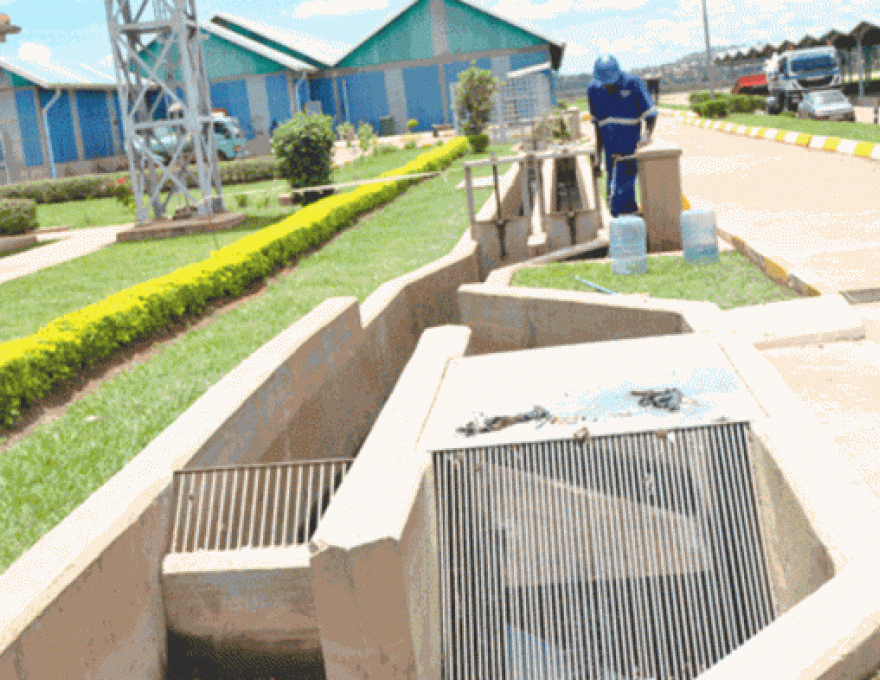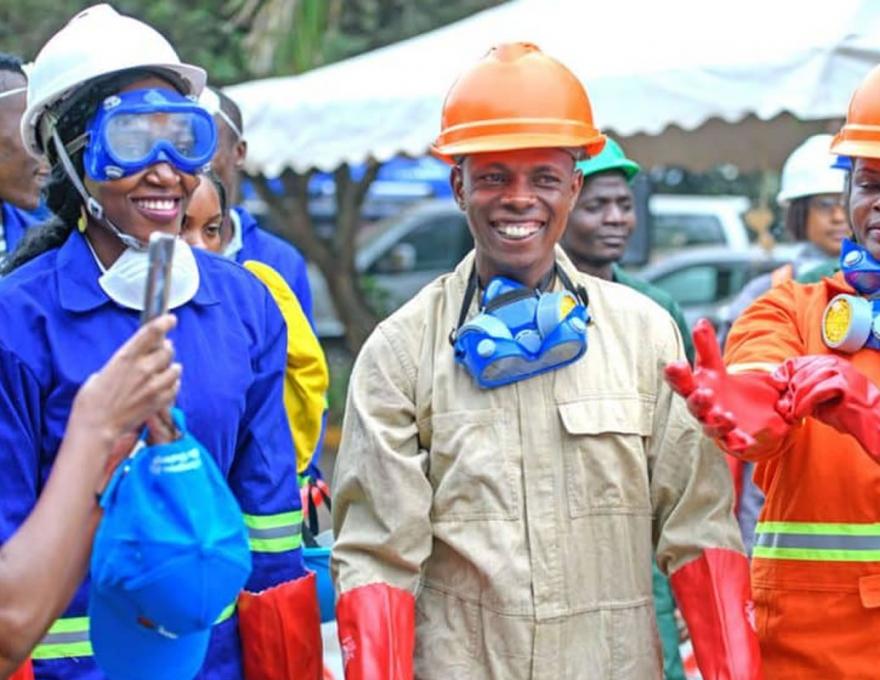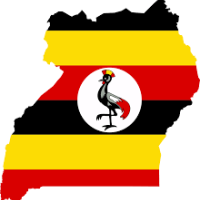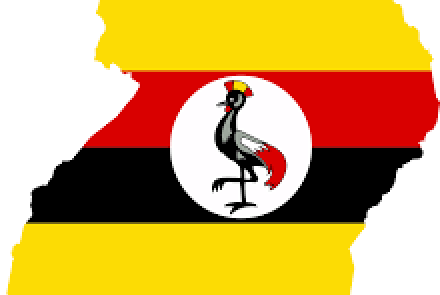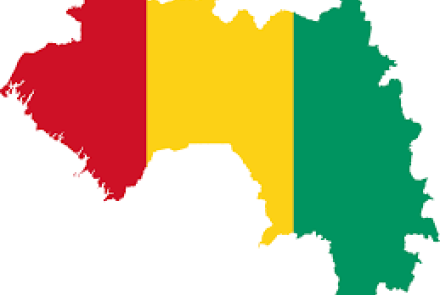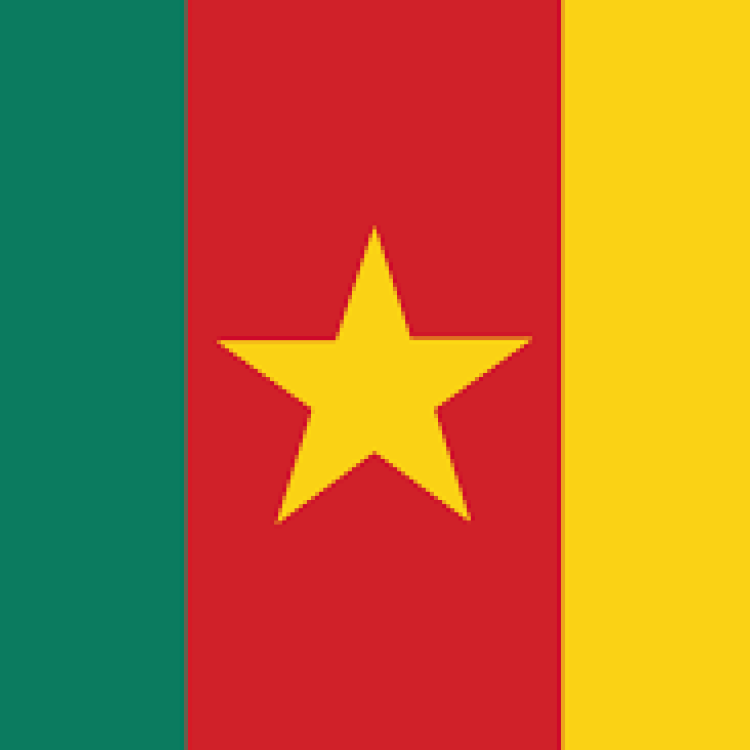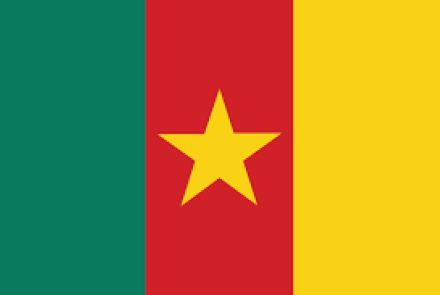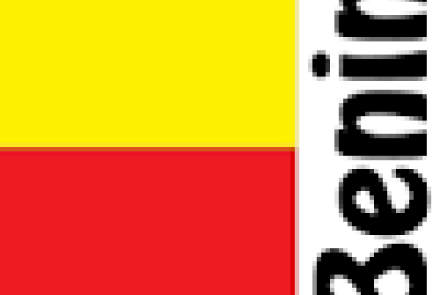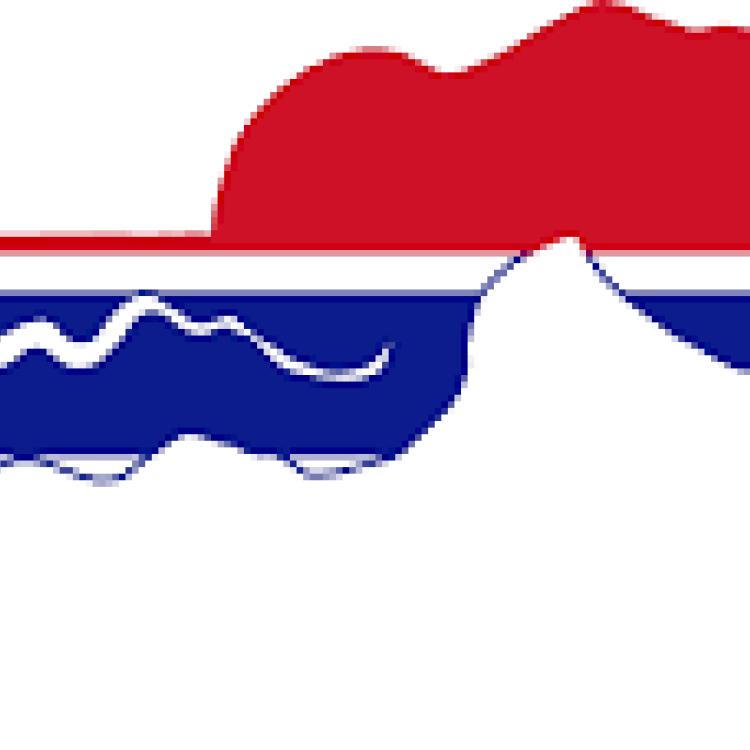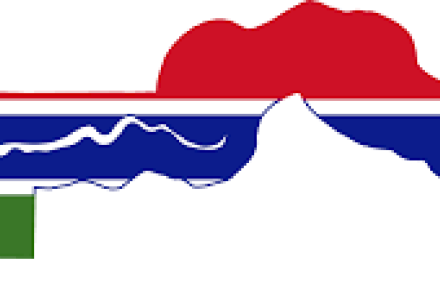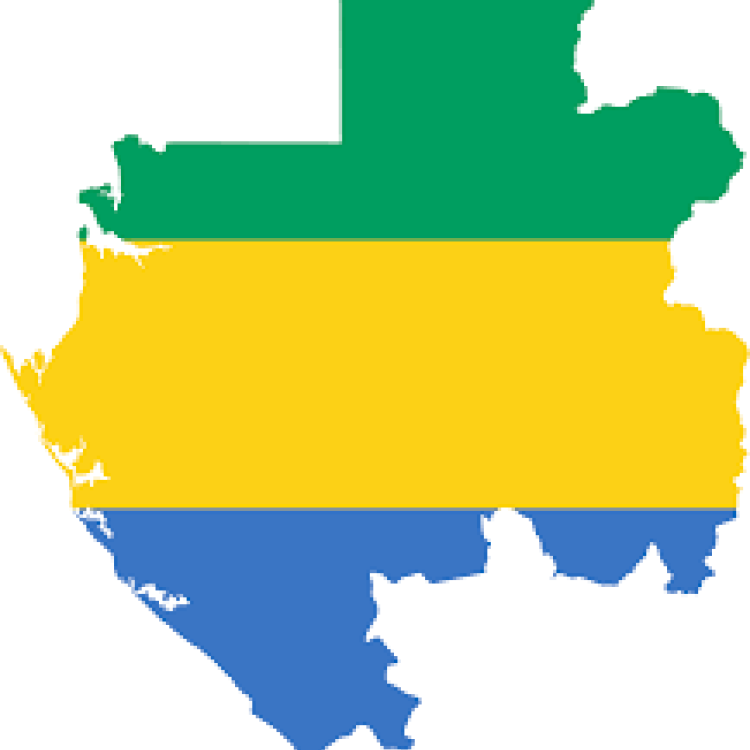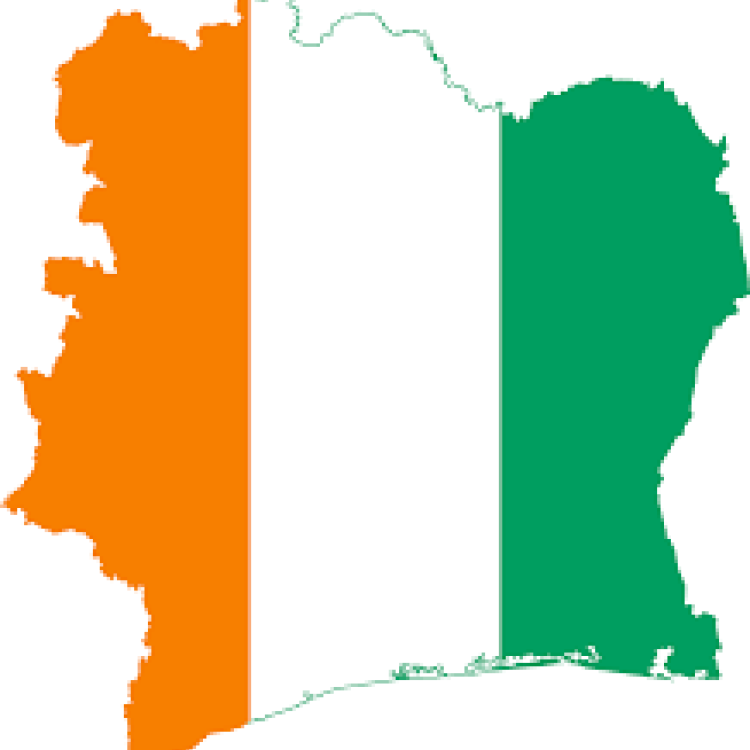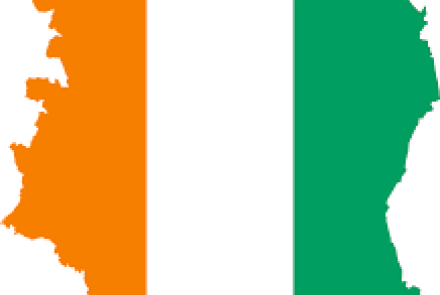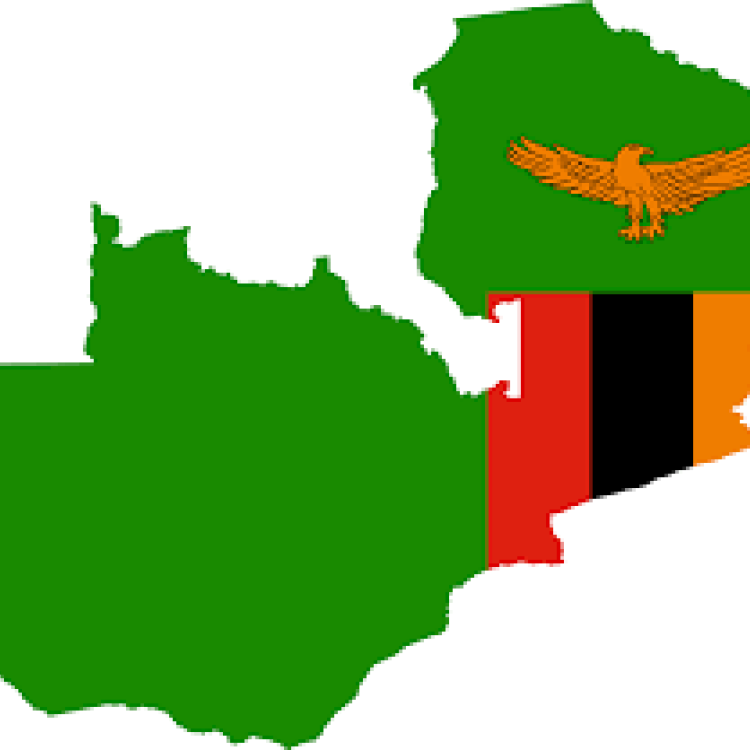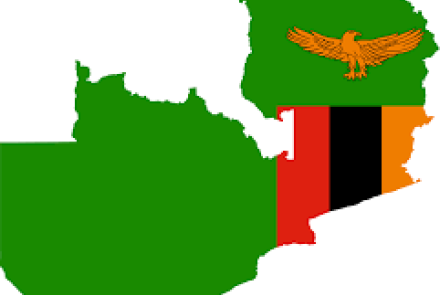1. Introduction
The Association of Uganda Emptiers Limited (TAOUEL) was founded and registered in 2017 as a company limited by guarantee. Originally, actors in the FSM sector started to organize themselves in 1999, by then under two associations i.e. the Private Emptiers Association and Kampala Emptiers Association with 28 members and 4 truck. TAUOEL to date has 356 members who operate 132 trucks indicating a substantial growth both in membership as well as in their capacity.
As an association, TAOUEL provides a common voice and represents the interests of its members as well as supports government authorities in monitoring members’ compliance with safety standards in pit emptying. TAOUEL’s main focus is to actively engage key stakeholders in the sector to work towards a more conducive business environment for pit Emptiers.
The Association needs to be more strategic in mobilising resources to finance its strategic plan and needs to open more diverse streams of income to ensure sustainability. “We are going to identity potential partners through partner mapping, and lobby for their positive support and contributions. By doing this we shall be in position to implement our strategic plan and meet our targeted achievements in five years. Furthermore, we are going to identify income generation projects like managing a parking yard, the association truck, to mention but a few, that will enable us to implement the strategy.”

2. Context Analysis
Institutionally, TAOUEL continues to be restrained by limited resources both in terms of limited equipment and finances to support the activities of the Association but also inability to recruit staff for an effective Secretariat. This in turn affects its capacity to consistently engage its membership, e.g. through regular communication and capacity building as well as rendering relevant membership services in the most effective manner. The limited capacities and resources have also negatively affected the Association’s ability to consistently engage decision-makers in issues concerning their members. A lack of visibility and regular external communication on its work may negatively affect its ability to advocate for members’ interests as well as effectively mobilize resources for its activities.
TAOUEL stands in a strong position with currently 356 Members owning 132 trucks - both speaking for the growth of the Association as well as increased capacity of Emptiers to respond to the increasing faecal sludge management needs of Kampala residents and other urban centres. However, TAOUEL’s collection from both membership and subscription fees is still very minimal. There has been a tremendous reluctance in the way members pay their dues and this has been worsened by the COVID-19 pandemic that has affected the operations of the association. The main reason for the members reluctance to pay their subscription is the minimal value they perceive to receive from the association. The members do not yet appreciate the indirect and non-monetary
benefits from the association and only look out for monetary gains. This has led to a disengagement of some sections of the membership who question the commitment of the leadership.
The association currently has no monetary resources. It is relaying on voluntary services from its members especially the executive committee. There is no full-time staff. The available part-time staff comes to office for specific very important issues. Once the executive members realise the need for this staff, they mobilize resources among each other and give her small allowance to cater for transport. In the recent past, TAOUEL has been supported by KCCA and GIZ to pay for rent and staff salaries for two staff. EU, through GIZ-CUSP has supported the development the strategic plan.
Diversified reliable sources of revenue for the operations of TAOUEL
There is a growing number of emptiable toilets in Kampala and other urban areas due to technological advancement, reducing land for construction, urbanization and population grown. The Association currently has 27 registered companies as its members which are certified by KCCA and NWSC, and of those six (6) are licensed by NEMA. These are promising indicators for an increasing professionalization of the sector and stable businesses for member.
“We are going to identity potential partners through partner mapping, and lobby for their positive support and contributions”.
TAOUEL is a member and the secretary with Pan African Sanitation Actors (PASA). PASA funds all activities and trips related to PASA. In this way, TAOUEL benefits the visibility it gets through PASA activities.
While the COVID 19 pandemic had a detrimental effect on regularly engaging with members and holding meetings such as the annual general assembly (AGM), the Association has nevertheless succeeded in retaining a committed leadership team and is legally compliant. Due to its solid membership and active engagement in the sector, the Association is a well-recognized stakeholder in the sanitation sector as evidenced by the different partnerships with KCCA, NEMA, MoWE, NWSC and GIZ. This provides the Association with opportunities to represent the interests of its members to key decision makers.
3. Objective
This Resource Mobilisation Strategy was developed to establish diversified reliable sources of revenue for the operations of the Association. This will be achieved through four (4) strategic Interventions as detailed in section 4.
4. Strategic Interventions
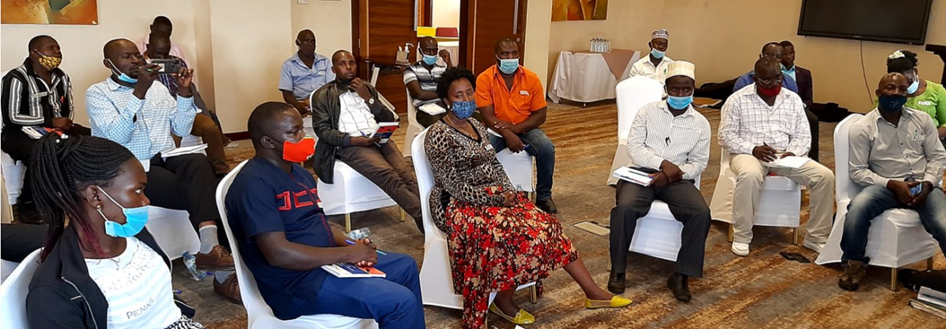
Strategic Intervention 1: Member involvement.
Member involvement will aim to improve members’ appreciation for subscription, increased appreciation of non- monetary benefits, increased satisfaction of members, increased transparency and accountability of the leadership to increase collections from members.
Key interventions will include;
- Mobilize and sensitize members on the relevance of paying monthly contributions. The leaders will used regular meetings, notice boards, WhatsApp Group and the website to communicate and disseminate information to members. This will include holding regular accountability meetings with members where a report on funds connected and how it has been used will be made to all members. The WhatsApp Group will be moderated by the admin who will have the right to share to others to avoid misuse of the group and sending unrelated items.
- Review of the organization structure and Election of new leadership: Now that the economy is open after 2 years of lockdown, the association can hold its AGM to change its leadership. The association will review its leadership structure to include a representative and/or community leader from each division to sit on the Executive Committee as ex-officials. This is aimed to strengthen the link between the community as market providers and the association. The community members will know the demand on the ground and inform TAOUEL in a timely manner, with the possibility to mobilize and arrange for group emptying that will reduce on the cost of emptying and consequently reduce the prices charged.
- Enforcing regulations and issuance of members certificate: The association will review its structures, rules and regulations that portray members’ needs but also promote professionalism and integrity. A clear fee structure will be developed and illustrate the benefits of membership in TAOUEL. The revised structures, rules and regulations of the association will be enforced by TAOUEL’s leadership and will provide relevant services for paid up members. A certificate of membership will always be provided to paid up members upon compliance and ensure mutual respect between leadership and members.
- Members’ capacity building: Training workshops for members on relevant topics of financial management, legal compliance, customer care etc. will be conducted. The association will also explore possibilities of charging a small commitment fee to increase appreciation and commitment.
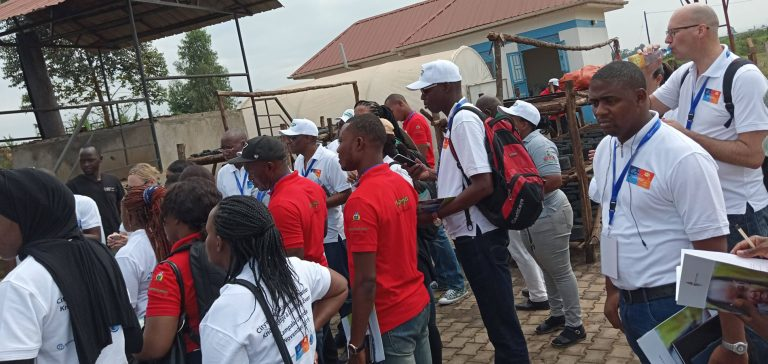
Strategic Intervention 2: Stakeholder engagement
The second intervention to resource mobilization will be effective, timely and strategic engagement with stakeholders in the water and sanitation sector, business partners, donors, Financing institutions, communities and other stakeholders as will be indicated by the mapping.
Key interventions
- Stakeholder mapping: The taskforce will identify potential partners (Local, national, regional or international partners) through a stakeholder mapping, understand their interests /programmes better and request for collaboration where there is a win-win situation for easy implementation of strategic activities. The task force will develop the Terms of Reference and a questionnaire guide to use in the mapping exercise. The mapping will start with partners that have been identified in the development of the strategy.
- Write high quality targeted proposals; that take into account partner interests and correspond to TAOUEL’s strategy by a designated team. The team shall be selected by the Executive committee.
- Partner with corporate companies for Corporate Social Responsibility and Marketing. Using the report of the mapping survey, TAOUEL shall identify and contact potential companies with concrete proposals for CSR or marketing for emptying business to diversify our revenue base. A customized approach and “pitch” shall be used per partner depending on the company’s strategy, nitch and needs.
Strategic Intervention 3: Fundraising events
This will involve arranging events that aim at raising funds through donations and other fundraising avenues.
Key interventions
- Sanitation run: TAOUEL will organize the first of its kind sanitation marathon probably in the second year of implementing this strategy. This will be in partnership with other sanitation actors in Uganda and Africa. Africa will be coordinated through PASA. The media will be involved to increase the visibility of TAOUEL and FSM. Other proposal could be to partner with MTN or Buganda Kingdom with the current marathon to thematize the next marathon towards Faecal Sludge Management (FSM). “In this case, we shall have increased visibility for TAOUEL and emptying services”.
- Fundraising events: A fundraising committee will be commissioned by the executive committee. The committee will arrange fundraising events like fundraising dinners with high level people, car washing, selling sanitation related equipment, sanitation and climate smart products like briquettes, energy saving stoves, etc. Climate change activists, companies and well-wishers will be contacted for their participation and funds.
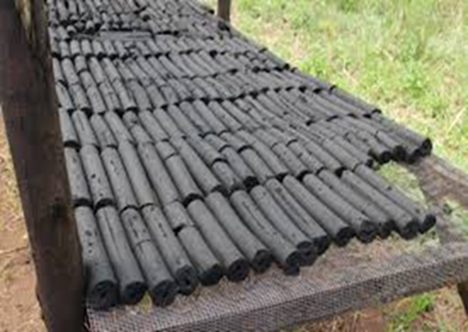
Strategic Intervention 4: Business arm
The fourth strategic intervention is the business arm. TAOUEL aims to be a financial guarantor to its members. This will require it to build a strong financial base through business. The association will deal in sanitation and climate change related products as indicated in the interventions below.
Key intervention
- Parking yard: The association will acquire a parking yard for members. This parking will be used by members both during the day and night. A reasonable fee will be changed to meet the operation and maintenance fees. A committee to manage the parking yard will be determined by the executive committee. This committee will then develop the TOR for operation and the fees in accordance with the constitution and affordability of members.
- Business trucks for the association: Like the parking yard, the association will acquire a cesspool truck that will be owned by the Association. Prior to the purchase and mobilization of funds, a committee will be commissioned by the Executive Committee to develop a business plan and present it to the executive Committee for approval. The revenue from this truck will be used to run the activities of the association including paying rent, salaries, utilities, etc. To avoid conflicting with the members, the truck will be given priority over the others and this will be known to all members.
- Manufacturing processes: The association will explore manufacturing of goods from feacal sludge like manure, briquettes and other sanitation related products like toilet paper. These will include toilet paper and briquettes. The executive committee will commission a manufacturing committee to design a business plan for these specific products. In the business plan, the manufacturing committee will carry out a business analysis on the construction of an on-site gas systems from fecal sludge. Once viable, the association will partner with climate change programs to provide communities with eco-friendly energy systems at a fee to conserve the environment.
- Data collection and selling: TAOUEL boosts with valuable data on FSM, the amount and quality of faecal sludge deposited in the treatment plants. This statistic can be sold to academicians, researchers and government bodies. TAOUEL could partner with academic institutions like Makerere to sell information on FSM and conduct mini/simple research with communities and local governments. A business analysis will be done to determine the requirements of such a venture and make decisions accordingly.

Strategic Intervention 5: Institutional strengthening
This strategic intervention will aim to strengthen the internal systems of the association to manage and lead to the satisfaction of members with integrity, accountability and transparency to increase trust from members. The interventions are spelt in the strategic plan 2022-2026.
5. Implementation of the strategy
A Resource Mobilization Task Force will be formed by the executive committee. The committee will comprise of chairpersons of the different committees formed in the above interventions, namely manufacturing, donors and stakeholder’s management, business truck, Parking yard, fundraising, and proposal writing. It is advisable to have a representative of members who took part in the development of the strategic Plan and Resource Mobilization Strategy. This committee shall meet every month to reflect on achievements, assess progress and review against the workplan while other smaller committees shall meet as per the TOR and work load at hand. The overall strategy will be reviewed every after two years.
6. Workplan
|
OBJECTIVE |
ACTIVITY |
RESPONSIBILITY |
TIMEFRAME |
|
Strategic Intervention 1: Member involvement. |
|||
|
Increased staff capacity to effectively engage in resource mobilization and members appreciation to paying subscription fees. Also have improved trust from members through regular information exchange. |
|
Board of directors |
March 2022 |
|
Executive committee |
During the AGM |
|
|
Staff in charge of finances |
Ongoing |
|
|
Executive committee |
April 2022 |
|
|
Welfare & membership engagement Officer |
April 2022 |
|
|
Task force members and Executive committee |
June 2022 |
|
|
Executive committee |
At least 5 trainings in a year |
|
|
Welfare & membership engagement Officer |
March 2022 |
|
|
Executive committee & Board of directors |
Monthly Twice a year Annually |
|
|
|
Strategic Intervention 2: Stakeholder engagement |
||
|
Strengthened Stakeholder relationship and more active partners for resource mobilization. |
|
Task force
|
June 2022 |
|
Task force members |
June 2022 |
|
|
Taskforce for developing the Strategic Plan |
April 2022 |
|
|
Task force
|
April 2022 |
|
|
|
Strategic Intervention 3: Fundraising Events |
||
|
Established marketing and sensitized communities for resource Mobilisation |
|
Executive Committee |
February 2022 |
|
Fundraising focal person |
At least one in five years
|
|
|
Fundraising focal person |
June 2022 |
|
|
Fundraising focal person |
One event in two years |
|
|
|
|
Fundraising focal person |
June 2022 |
|
|
Strategic Intervention 4: Business Arm |
||
|
|
Work package 1: Parking yard |
||
|
Established multiple sources of funds for an improved financial base. |
|
Luzige Edward & Matovu Jafah |
30th June 2022 |
|
Bakabulindi Shaka, Matovu Jafah and Luzige Edward |
1st February 2023 |
|
|
Taskforce members |
30th July 2022 |
|
|
Executive Committee |
June 2024 |
|
|
Executive committee |
June 2023 |
|
|
Work package 2: Truck |
|||
|
Matovu Jafah |
March 2023 |
|
|
Executive Committee and approval by the Board |
June 2023 |
|
|
|
|
|
|
|
Work package 3: Manufacturing and selling toilet paper |
|||
|
Bakabulindi Shaka and Matovu Jafah |
30th May 2022 |
|
|
Committee in charge of manufacturing |
30th June 2022 |
|
|
Executive committee |
2023 |
|
|
Executive committee |
30 June 2022 |
|
|
Work package 4: Data collection and selling |
|||
|
Task force |
December 2022 |
|
|
Task force |
December 2022 |
|
|
Task force |
December 2023 |
|
|
Executive committee |
30th June 2023 |
|
|
Working package 5: Making on-site gas from fecal sludge. |
|||
|
Committee in charge of manufacturing. |
30th June 2022 |
|
|
Taskforce |
|
|
|
Task force |
|
|
|
Executive committee |
|
|
|
Working package 6: Manufacturing and selling products from fecal sludge Manure and briquettes |
|||
|
Office in charge of manufacturing.
|
30th June 2022
|
|
|
|
|
Human resource committee |
30th June 2022 |
|
|
|
Executive committee |
|
|
|
Strategic Intervention 5: Institutional Strengthening |
||
|
A well established and reputable institution that fulfills its mandate. |
|
|
|
- Kampala, Ouganda
- info@ugandaemptiers.org
- +256 772 665 410
- https://www.ugandaemptiers.org/
